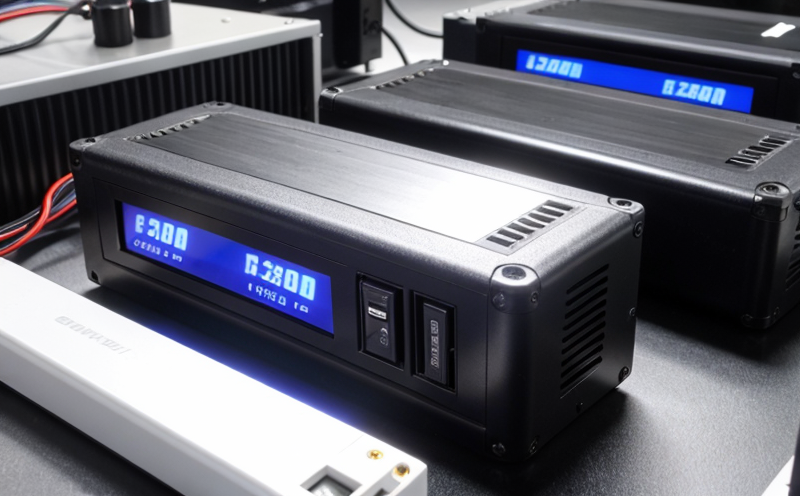IEC 62660-1 Lithium-Ion Cells for EV Performance Testing
The International Electrotechnical Commission (IEC) Standard IEC 62660-1 defines the performance and test methods of lithium-ion cells intended for use in electric vehicles (EVs). This standard is crucial as it ensures that battery cells used in EVs meet stringent quality and safety requirements, thereby enhancing vehicle reliability and consumer trust.
The primary focus on this standard lies in ensuring consistent cell performance across different manufacturers and suppliers. By adhering to IEC 62660-1, manufacturers can guarantee that their cells will perform reliably under various operating conditions, which is critical for the safe and efficient operation of EVs. This includes testing parameters such as internal resistance measurement, cycle life assessment, high-rate capacity determination, and low temperature performance evaluation.
Our service involves a comprehensive battery cell performance test using IEC 62660-1, ensuring that your lithium-ion cells meet all specified criteria for use in EVs. This process helps ensure compliance with regulatory requirements while also providing valuable insights into the performance characteristics of the cells under real-world conditions.
The testing procedure involves rigorous preparation steps, including cell conditioning and pre-conditioning to standardize initial state. The test setup uses advanced equipment capable of simulating various operational scenarios relevant to EVs, such as high current discharge rates and extended cold storage periods. During these tests, we monitor key performance indicators (KPIs) like voltage stability, energy efficiency, and thermal management.
Our team of experts ensures that every aspect of the testing process adheres strictly to IEC 62660-1 guidelines. From selecting appropriate test protocols based on cell chemistry to interpreting results accurately, we provide thorough documentation and detailed reports summarizing all findings. These documents serve as essential references for both internal quality control purposes and external regulatory submissions.
By leveraging our expertise in conducting IEC 62660-1 compliant tests, you can rest assured that your lithium-ion cells are thoroughly evaluated against industry standards. This not only supports ongoing product development but also facilitates smoother integration into larger systems like electric vehicles or stationary energy storage solutions.
Why It Matters
The significance of meeting IEC 62660-1 standards cannot be overstated, especially within the context of electric vehicle (EV) manufacturing. Compliance with this standard ensures that lithium-ion cells used in EVs are reliable, safe, and perform consistently across diverse applications.
- Enhances safety by preventing potential hazards associated with improper battery operation.
- Promotes long-term reliability through consistent performance over time.
- Fosters trust among consumers who rely on dependable electric vehicle technology.
- Aids in regulatory compliance, ensuring adherence to national and international standards.
Adhering to these stringent requirements helps maintain high-quality standards throughout the supply chain, from raw material sourcing to final product assembly. It also positions manufacturers at an advantageous competitive position by demonstrating commitment to superior performance and safety.
Applied Standards
| Standard Name | Description |
|---|---|
| IEC 62660-1 | Lithium-ion cells intended for use in electric vehicles - Part 1: General requirements and test methods. |
The application of IEC 62660-1 involves a series of tests designed to evaluate the electrical characteristics, mechanical integrity, chemical stability, and thermal behavior of lithium-ion cells. This table provides an overview of the relevant standards applicable for assessing these aspects.
International Acceptance and Recognition
- The United States recognizes IEC 62660-1 as a harmonized standard with its own national standard, ANSI/UL9458.
- In Europe, the standard is aligned with EN ISO 9001 for quality management systems.
- Japan has incorporated elements of this standard into JIS D 3726, which covers battery pack specifications.
These recognitions reflect the global acceptance and importance given to IEC 62660-1 in ensuring consistent performance across different markets. Compliance with these standards assures that your lithium-ion cells will be accepted by major automotive manufacturers worldwide.





